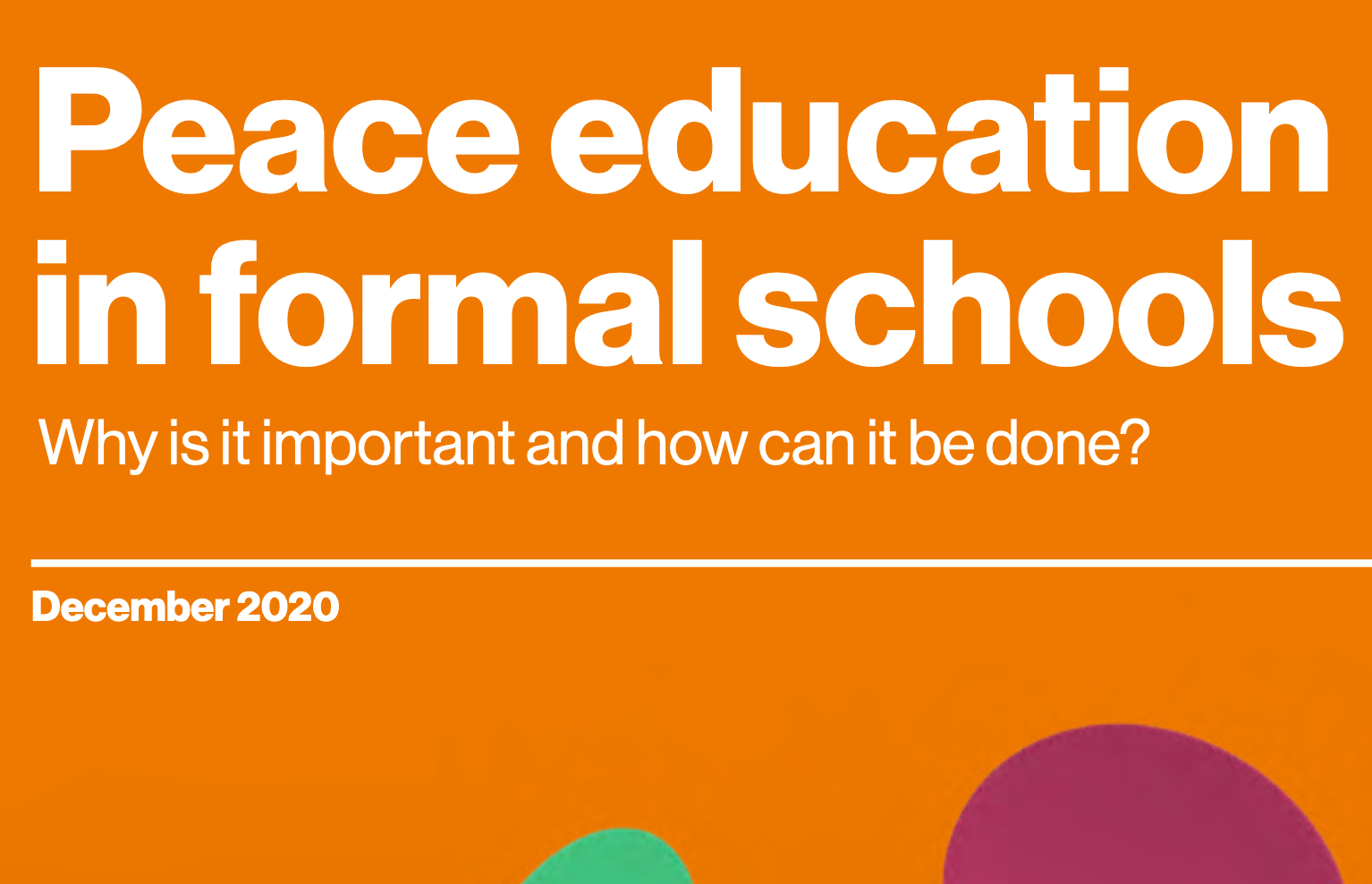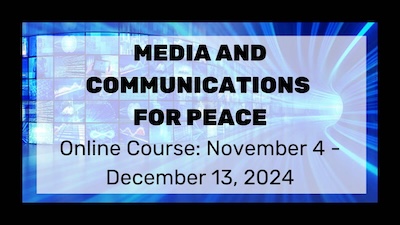
By World BEYOND War, December 11, 2020
World BEYOND War Education Director Phill Gittins contributed to the creation of a new report by Caroline Brooks and Basma Hajir called “Peace education in formal schools: Why is it important and how can it be done?”
This report explores what peace education in schools looks like, its potential impact and how it might be realised in practice.
The research involved a literature review exploring the purpose, theory and practice of peace education, including case studies of peace education programmes delivered in formal schools within various conflict-affected contexts. Key issues and questions emerging from the review were then investigated through interviews with leading peace education academics and practitioners.
The report argues that there is a strong case for advancing the understanding and practice of peace education in formal schools and that schools can play a crucial role in furthering the aims of peace. After all, formal schools not only provide knowledge and skills, but they also shape social and cultural values, norms, attitudes and dispositions.
Peace education interventions in schools have been proven to result in improved attitudes and cooperation among pupils, and decreased violence and dropout rates. However, mainstreaming peace education is not straightforward. The space for peace education needs to be found within existing systems, where complementary work can be undertaken.
Advancing peace education within a formal school context requires a multifaceted approach and process. There is no one-size-fits-all solution, but there are some key principles and approaches that are necessary:
- promoting healthy relationships and a peaceful school culture;
- addressing structural and cultural violence within schools;
- taking account of the way education is delivered in the classroom;
- connecting peace education approaches focused on the individual as well as wider socio-political outcomes;
- connecting peace education within schools to wider community practices and non-formal actors, such as nongovernmental organisations and civil society organisations; and
- where possible having education policies and legislation that support peace education to achieve full integration into formal school settings.








